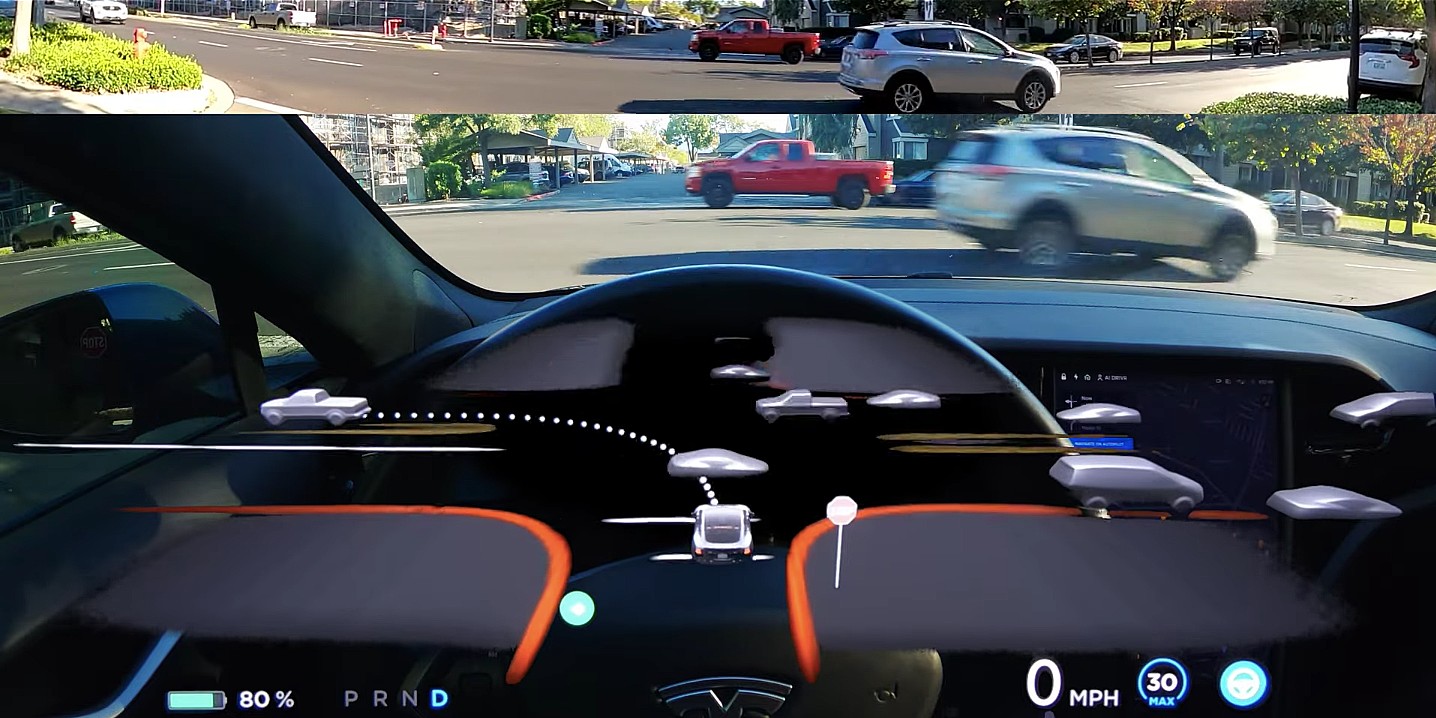
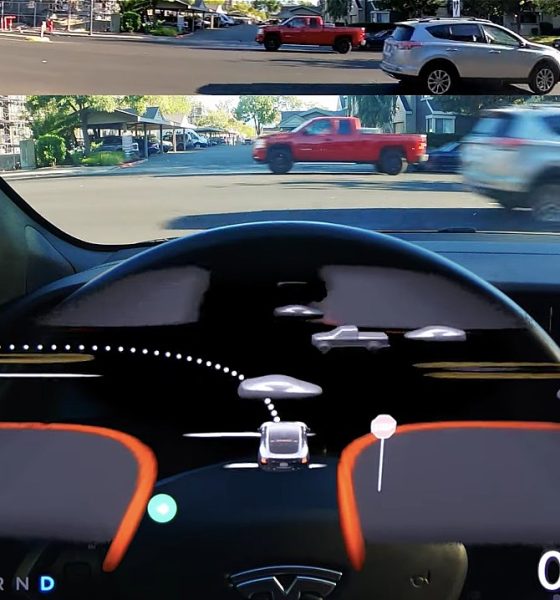
News
Tesla to recall over 53k FSD Beta cars over “rolling stop” feature, fix to be released through over-the-air update
Tesla will be recalling 53,822 vehicles in the United States that are equipped with the company’s Full Self-Driving (FSD) Beta software. The recall was initiated due to the system’s ability to perform “rolling stops,” which was introduced to the FSD Beta program back in October 2021 — and which may increase the risk of collisions.
According to the National Highway Traffic Safety Administration (NHTSA), the recall covers Model S and Model X from the 2016-2022 model years, 2017-2022 Model 3s, and Model Ys from the 2020-2022 model years. To address the issue, Tesla would be releasing an over-the-air software update that would disable the FSD Beta vehicles’ “rolling stop” functionality.
Tesla has so far not provided a comment about the matter. The company mentioned last week, however, that its FSD Beta fleet has increased to almost 60,000 vehicles. This should help Tesla gather valuable real-world data that can further help the company develop and refine its advanced driver-assist systems such as Autopilot and FSD Beta.
FSD Beta’s “rolling stop” functionality is designed to allow a vehicle to travel through an all-way-stop intersection without coming to a complete stop at speeds of 0.1-5.6 mph. According to the NHTSA’s Safety Recall Report, Tesla and the NHTSA met on January 19, 2022, to discuss FSD Beta’s “rolling stop” feature, including its operating parameters. A recall determination was voluntarily made to disable the feature on January 20, 2022.
Tesla notes that so far, the company is not aware of any warranty claims, field reports, crashes, injuries, or fatalities that resulted from FSD Beta’s “rolling stop” function. That being said, Tesla did note that a fix for the issue would be rolled out through firmware release 2021.44.30.15, which should disable the “rolling stop” feature. No action is necessary among Tesla drivers whose vehicles are affected by the recall.
Tesla’s remedy for the issue follows.
“Tesla will disable the “rolling stop” functionality on affected vehicles, starting with firmware release 2021.44.30.15. Firmware release 2021.44.30.15 is expected to begin deployment OTA to affected vehicles in early February 2022. The disablement will carry forward in firmware release 2021.44.30.15 and later releases. No further action is necessary from owners who install firmware release 2021.44.30.15 or a later release on their vehicles. Tesla does not plan to include a statement in the Part 577 owner notification about pre-notice reimbursement to owners because there is no paid repair relating to this recall’s underlying condition and owners will receive the remedy free of charge through firmware release 2021.44.30.15 or a later release.”
The NHTSA’s Safety Recall Report for Tesla’s FSD Beta “rolling stops” feature can be viewed below.
RCLRPT-22V037-4462 by Simon Alvarez on Scribd
Don’t hesitate to contact us with news tips. Just send a message to simon@teslarati.com to give us a heads up.

Elon Musk
SpaceX secures FAA approval for 44 annual Starship launches in Florida
The FAA’s environmental review covers up to 44 launches annually, along with 44 Super Heavy booster landings and 44 upper-stage landings.
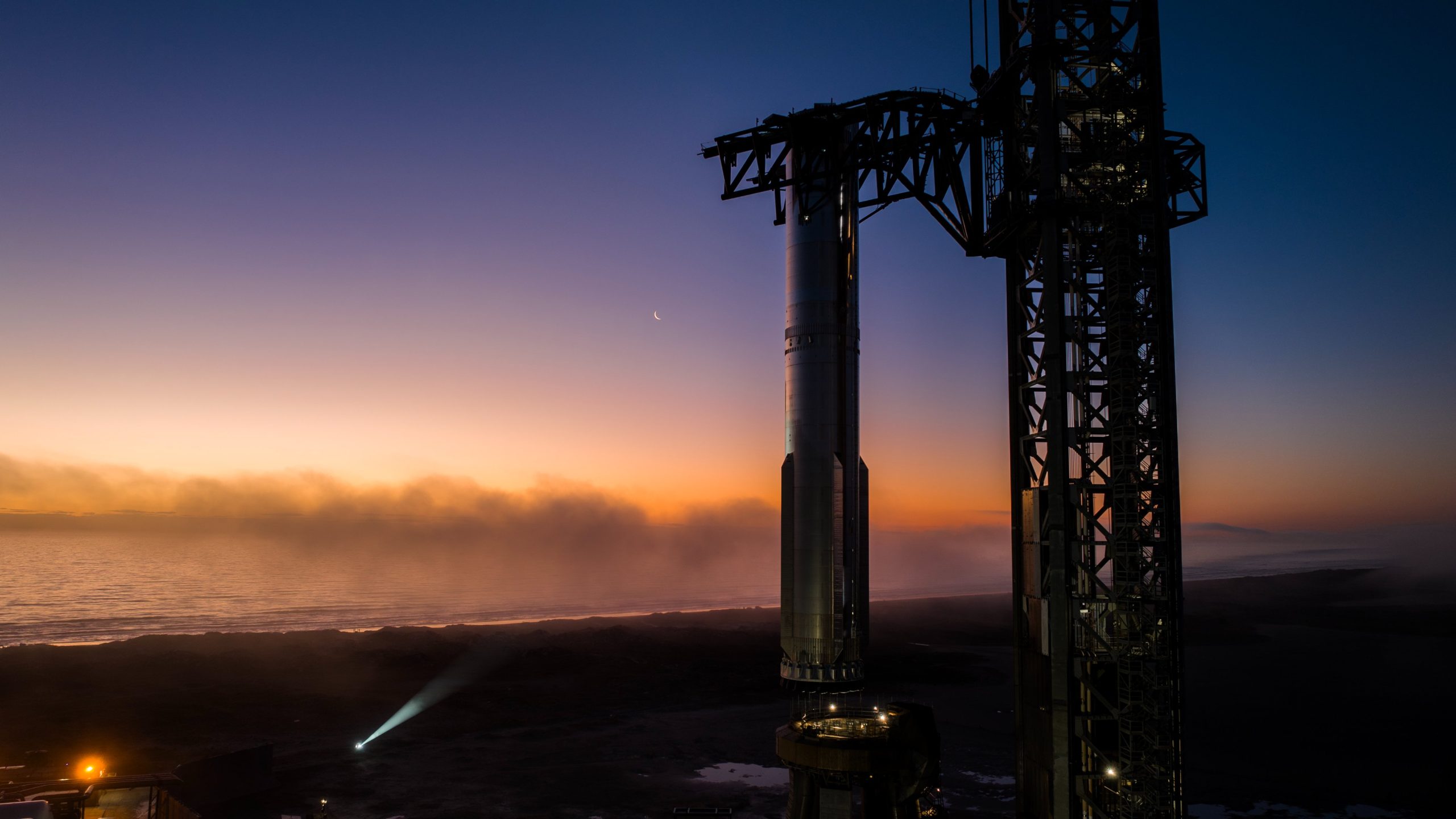
SpaceX has received environmental approval from the Federal Aviation Administration (FAA) to conduct up to 44 Starship-Super Heavy launches per year from Kennedy Space Center Launch Complex 39A in Florida.
The decision allows the company to proceed with plans tied to its next-generation launch system and future satellite deployments.
The FAA’s environmental review covers up to 44 launches annually, along with 44 Super Heavy booster landings and 44 upper-stage landings. The approval concludes the agency’s public comment period and outlines required mitigation measures related to noise, emissions, wildlife, and airspace management.
Construction of Starship infrastructure at Launch Complex 39A is nearing completion. The site, previously used for Apollo and space shuttle missions, is transitioning to support Starship operations, as noted in a Florida Today report.
If fully deployed across Kennedy Space Center and nearby Cape Canaveral Space Force Station, Starship activity on the Space Coast could exceed 120 launches annually, excluding tests. Separately, the U.S. Air Force has authorized repurposing Space Launch Complex 37 for potential additional Starship activity, pending further FAA airspace analysis.
The approval supports SpaceX’s long-term strategy, which includes deploying a large constellation of satellites intended to power space-based artificial intelligence data infrastructure. The company has previously indicated that expanded Starship capacity will be central to that effort.
The FAA review identified likely impacts from increased noise, nitrogen oxide emissions, and temporary airspace closures. Commercial flights may experience periodic delays during launch windows. The agency, however, determined these effects would be intermittent and manageable through scheduling, public notification, and worker safety protocols.
Wildlife protections are required under the approval, Florida Today noted. These include lighting controls to protect sea turtles, seasonal monitoring of scrub jays and beach mice, and restrictions on offshore landings to avoid coral reefs and right whale critical habitat. Recovery vessels must also carry trained observers to prevent collisions with protected marine species.
Elon Musk
Texas township wants The Boring Company to build it a Loop system
The township’s board unanimously approved an application to The Boring Company’s “Tunnel Vision Challenge.”
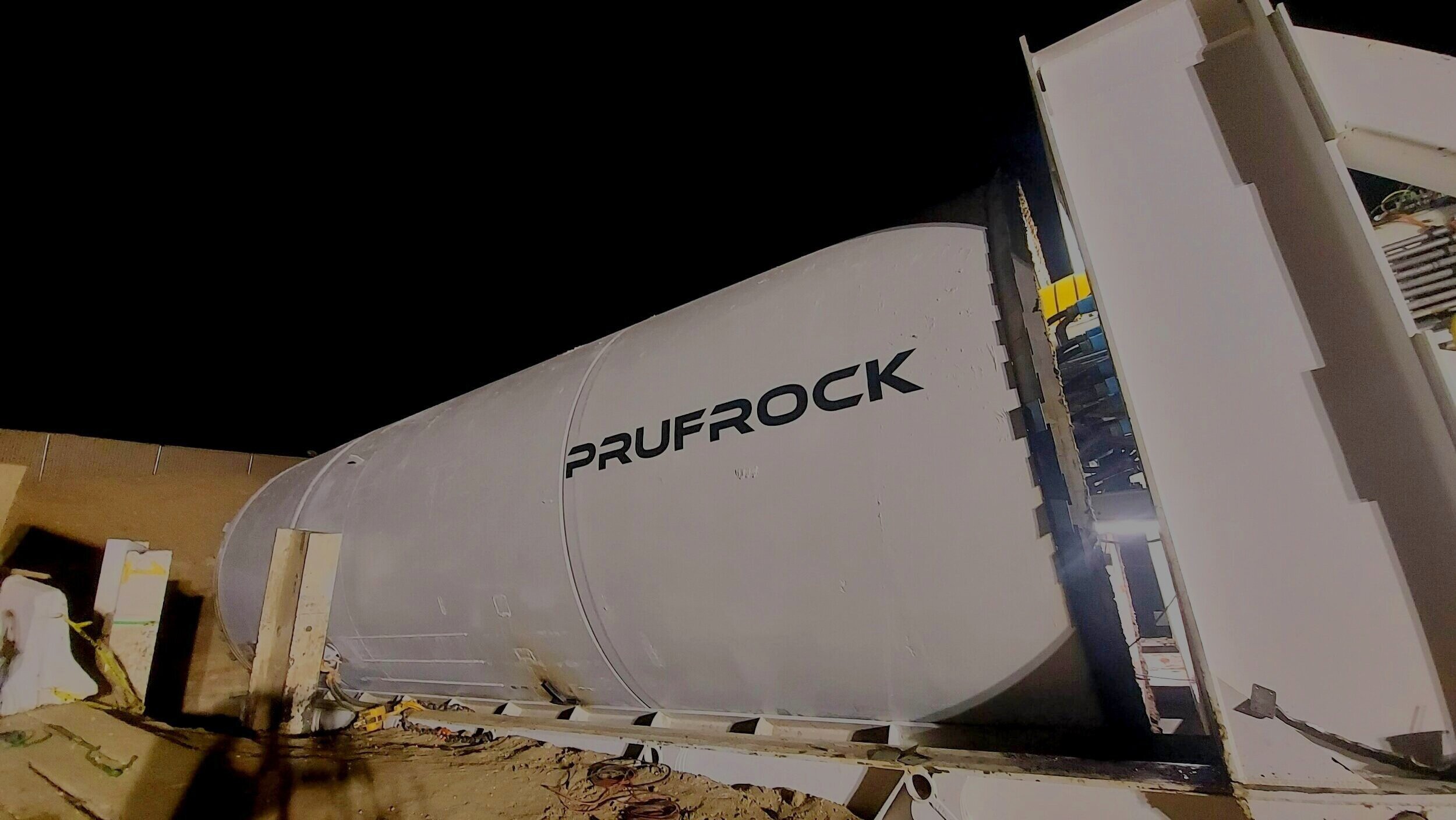
The Woodlands Township, Texas, has formally entered The Boring Company’s tunneling sweepstakes.
The township’s board unanimously approved an application to The Boring Company’s “Tunnel Vision Challenge,” which offers up to one mile of tunnel construction at no cost to a selected community.
The Woodlands’ proposal, dubbed “The Current,” features two parallel 12-foot-diameter tunnels beneath the Town Center corridor near The Waterway. Teslas would shuttle passengers between Waterway Square, Cynthia Woods Mitchell Pavilion, Town Green Park and nearby hotels during concerts and large-scale events, as noted in a Chron report.
Township officials framed the tunnel as a solution for the township’s traffic congestion issues. The Pavilion alone hosts more than 60 shows each year and can accommodate crowds of up to 16,500, often straining Lake Robbins Drive and surrounding intersections.
“We know we have traffic impacts and pedestrian movement challenges, especially in the Town Center area,” Chris Nunes, chief operating officer of The Woodlands Township, stated during the meeting.
“The Current” mirrors the Loop system operating beneath the Las Vegas Convention Center, where Tesla vehicles transport passengers through underground tunnels between venues and resorts.
The Boring Company issued its request for proposals (RFP) in mid-January, inviting cities and districts to pitch local uses for its tunneling technology. The Woodlands must submit its application by Feb. 23, though no timeline has been provided for when a winning community will be announced.
Nunes confirmed that the board has authorized a submission for “The Current’s” proposal, though he emphasized that the project is still in its preliminary stages.
“The Woodlands Township Board of Directors has authorized staff to submit an application to The Boring Company, which has issued an RFP for communities interested in leveraging their technology to address community challenges,” he said in a statement.
“The Board believes that an underground tunnel would provide a safe and efficient means to transport people to and from various high-use community amenities in our Town Center.”
News
Tesla Model Y wins 2026 Drive Car of the Year award in Australia
The Model Y is already Australia’s best-selling EV in 2025 and the tenth best-selling vehicle overall.
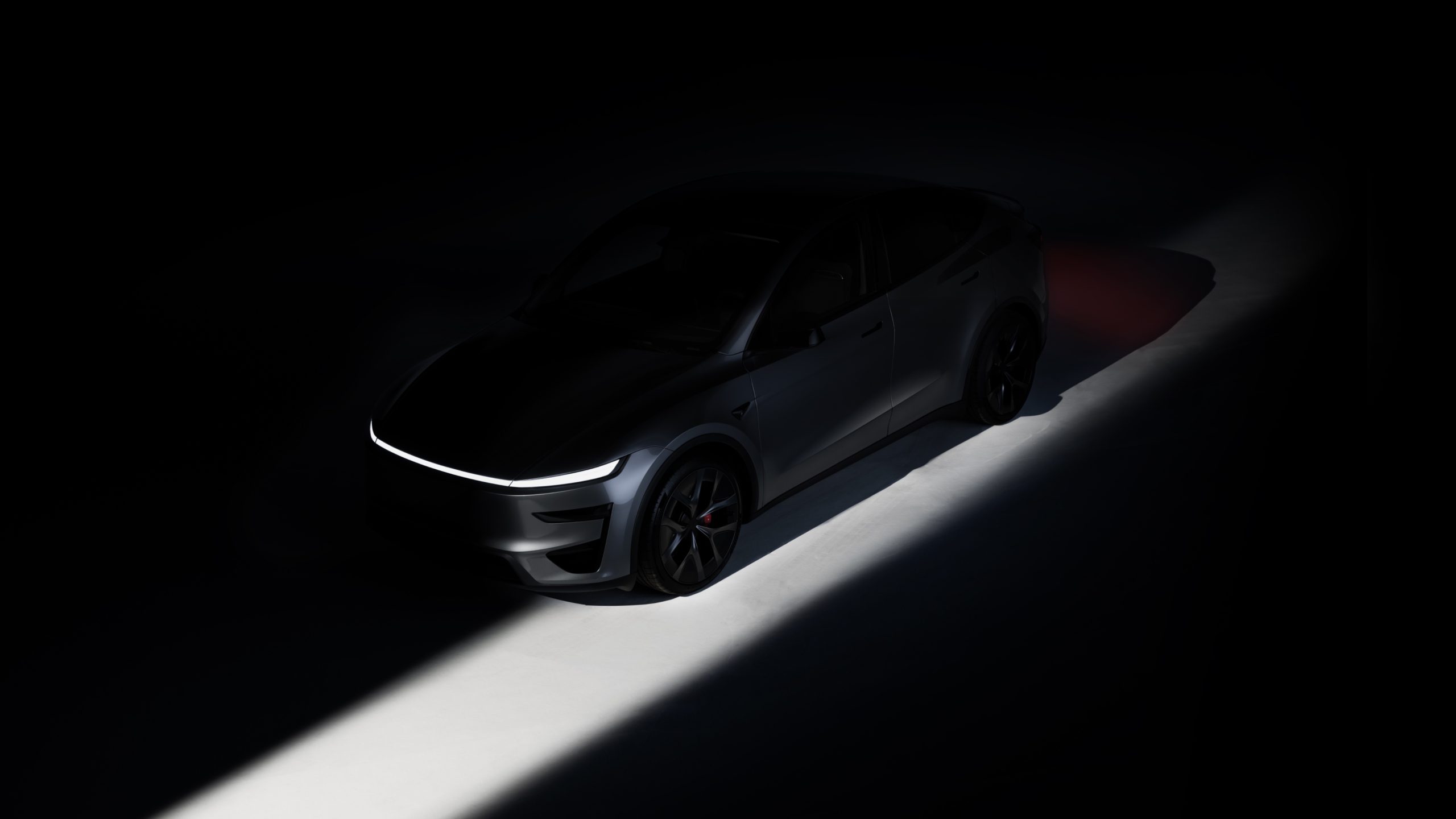
The Tesla Model Y has been named 2026 Drive Car of the Year overall winner, taking the top honor after being judged as the vehicle that “moves the game forward the most for Australian new car buyers.”
The Model Y is already Australia’s best-selling EV in 2025 and the tenth best-selling vehicle overall, but the vehicle’s Juniper update strengthened its case with new ownership benefits and expanded software capability.
Drive’s overall award compares category winners and looks at which model most significantly advances the local new car market. In 2026, judges pointed to the Model Y’s five-year warranty and the availability of Full Self-Driving (Supervised) as a monthly subscription as key differentiators.
Priced from AU$58,900 before on-road costs, the all-electric crossover SUV offers a lot of value compared to similarly sized petrol and hybrid rivals. The ability to access Tesla’s Supercharger network across Australia also reduces friction for buyers moving to EV ownership.
Owners can add FSD (Supervised) for AU$149 per month. While it still requires driver oversight, the system expands the vehicle’s advanced driver-assistance capabilities and reflects Tesla’s software-first approach.
“The default choice for a reason. The Tesla Model Y makes the transition to electric both effortless and rewarding,” Drive wrote.
The 2025 Model Y facelift also sharpened the vehicle’s exterior, highlighted by a distinctive rear light bar that gives the crossover SUV a more modern road presence.
Drive described the Model Y as a benchmark for combining practicality, efficiency and technology at an accessible price point. With eligibility for federal Fringe Benefit Tax exemptions through novated leasing, its value proposition has improved for numerous buyers.
For 2026, the Model Y’s combination of range efficiency, charging access and software capability proved decisive. Ultimately, the award all but cements the Model Y’s position as one of the most influential vehicles in Australia’s evolving new-car market today.








